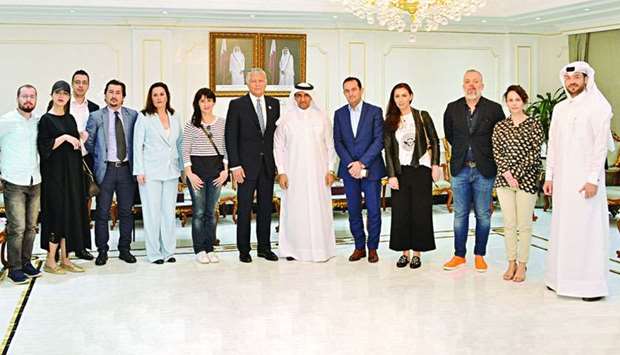Qatar Chamber hosted on Monday a meeting with a delegation of journalists and bloggers from the Balkan states, including Albania, Kosovo, and Greece, who were briefed on how the Chamber helped overcome the challenges of the June 2017 economic blockade.
Dr Khaled Klefeekh al-Hajri, Qatar Chamber board member, said the country has benefited from the blockade thanks to the economic sound policies and rapid response to address the crisis.
He noted that the blockade also contributed to accelerating development plans, as well as promoting the public-private co-operation and in activating industrial and agricultural development.
“Qatar has managed to build one of the most attractive investment environments in the world by developing its legislative environment and issuing new laws that protect and promote local and foreign investments,” he noted.
Al-Hajri briefed the delegation on the steps taken by the country to overcome impacts of the blockade, how it converted them into benefits, the role of the private sector in the economic growth, and role of the Chamber during the blockade.
He lauded the role played by the private sector in finding new alternatives for goods that were imported from blockading countries. He said local companies doubled their production to meet the market needs, and that a lot of factories and farms were established to achieve self-sufficiency.
Al-Hajri stressed that the blockade had no impact on all projects related to the 2022 FIFA World Cup, and affirmed that all preparations for the tournament would be accomplished sufficiently before the event.
Asked about Qatari investments in the Balkan States, al-Hajri said Qatari businessmen and investors are interested to explore the investment opportunities available in these countries. He also underscored the importance of organising trade delegation visits to Qatar.

